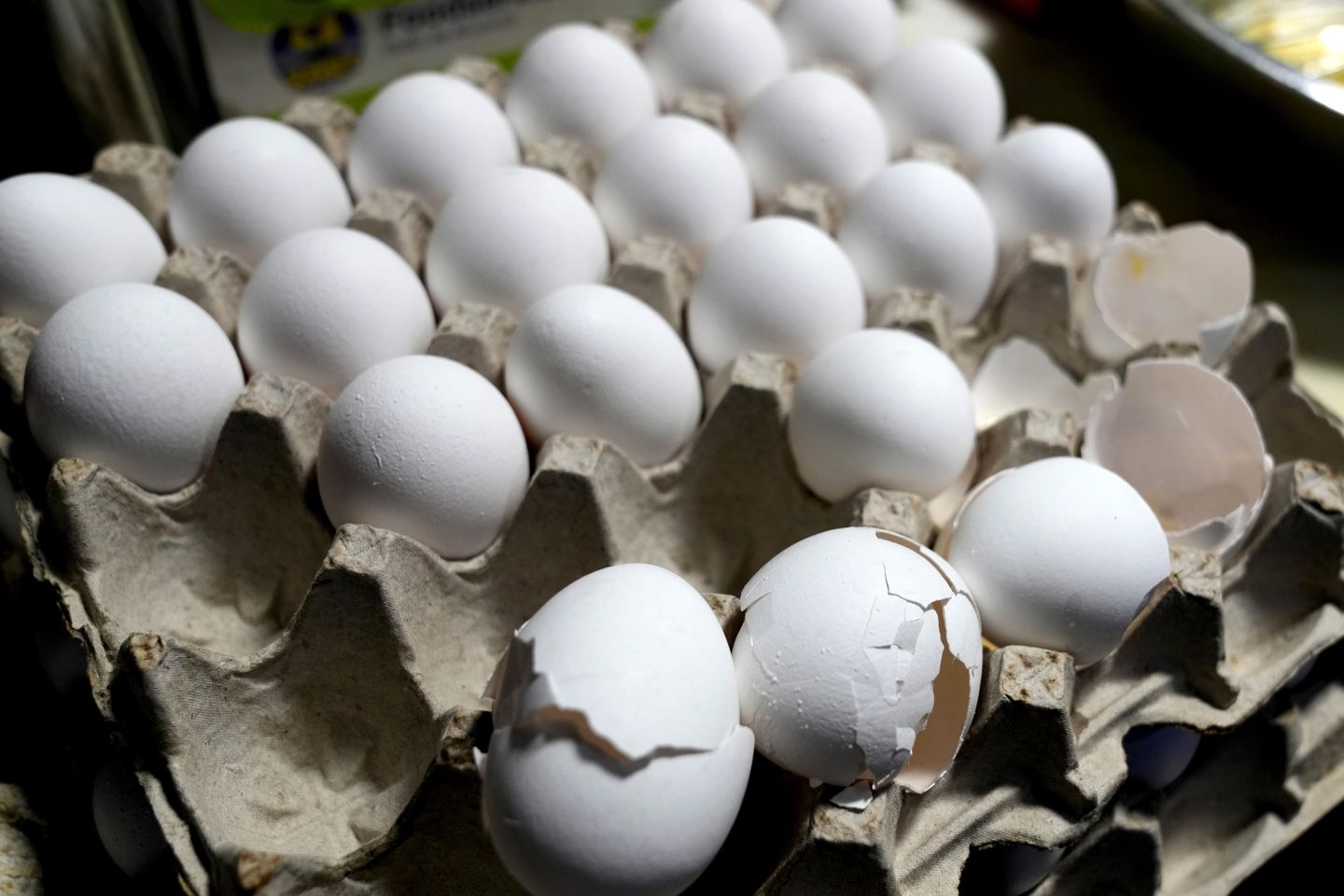
A bipartisan pair of senators wants the Justice Department to ramp up its probe of a possible price-fixing scheme in the egg industry.
Egg prices steadily climbed this year, reaching another record high in March. Egg producers largely blamed the price hike on an outbreak of avian flu.
The Justice Department launched an investigation in March into whether major egg producers were secretly sharing information on pricing and supply.
Sens. Elizabeth Warren, Massachusetts Democrat, and Jim Banks, Indiana Republican, have asked Assistant Attorney General Gail Slater to determine if the recent increases in egg prices represent “impermissible coordination among egg producers and trade associations.”
”While egg producers and trade associations point to recent avian flu outbreaks as the cause of high prices, we are concerned that record-high egg prices reflect non-competitive behavior among large producers,” the lawmakers said in a letter Friday.
“Egg prices began to drop from their record peaks only after the Department of Justice launched an investigation into whether large egg producers had engaged in anticompetitive practices to raise egg prices or restrict egg supply,” they wrote.
The Justice Department confirmed to The Washington Times that it had received the lawmakers’ letter, but declined to comment further on the status of the investigation.
Since January, egg prices have increased by roughly 25% and hit just over $6 per dozen eggs in March, according to data from the Bureau of Labor and Statistics.
Major players in the egg industry, like Cal-Maine Foods, have argued that the price increases are caused by the outbreak of bird flu.
Agriculture Secretary Brooke Rollins in February rolled out the Trump administration’s plan to dump $1 billion into a five-pronged strategy meant to fight back against the bird flu.
The administration split the money into $500 million for biosecurity measures, $400 million in financial relief for affected farmers and $100 million for vaccine research. It also aimed to take action to reduce regulatory burdens and explore temporary import options.
The USDA said that since the plan was implemented, “the wholesale price of eggs has dropped more than 56%.”
“It takes several weeks for wholesale price reduction to be felt in the retail market,” the USDA said in a statement. “That is why we must remain diligent. The plan is working.”
Wholesale egg prices have indeed fallen, according to USDA data. The average price of a dozen eggs was over $3 last week. That’s a roughly 40% drop from prices in January, which were over $6.
Ms. Warren and Mr. Banks contended that it was “difficult to square this claim with large egg producers’ apparent record profitability as prices were rising and avian influenza outbreaks were spreading.”
For example Cal-Maine, which controls over 20% of the egg marker, saw gross profits of $247 million, $356 million and record $716 million during the first three quarters of this fiscal year, which the lawmakers noted far outpaced “the $161 million the company made during the entire fiscal year 2021.”
“This data suggests that major producers are charging more and pocketing more for their eggs, not experiencing plummeting profitability due to bird flu outbreaks,” they said.
The Times reached out to Cal-Maine Foods for comment.
The lawmakers urged the Justice Department to answer a slew of questions about its investigation, including whether price changes in the egg market can be explained by the bird-flu outbreak, the cumulative increase in profits for the five largest egg producers in the country during the first three quarters of this fiscal year and whether the company’s’ purchasing patterns of egg-laying hen populations has shown an effort to extend egg supply shortages and maintain elevated prices.
They also wanted to determine if a sudden price decrease in the wholesale egg market following the Justice Department announcement of its investigation reflected coordination among the top egg producers.
“With just five companies controlling nearly half of the U.S. egg-laying flock, consumers have few alternatives if these companies artificially inflate prices,” the senators said.












